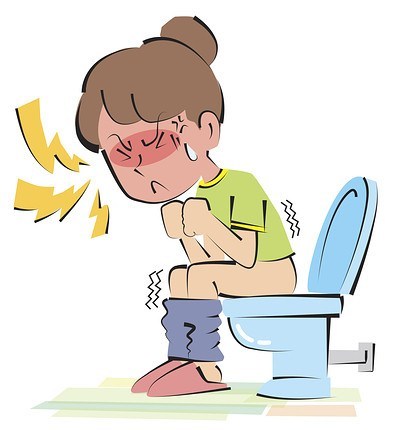
Constipation
Constipation is a common problem experienced by many people. It is a chronic condition in which bowel movements occur less often than usual, or consist of hard and dry stools that are painful or difficult to pass, or the person experiences a sense of incomplete emptying after a bowel movement.Normal bowel movements vary from person to person. For some people, passing stool twice a day is completely normal, while for others, three times a week is the norm. Any change from the normal habit is the best way to understand if you are constipated or not.
Symptoms of Constipation
A number of symptoms can suggest you may be constipated. These include, but are not limited to:
Hard and difficult stools less than three times a week, requiring you to strain
Requiring laxatives more than three times a week
Stools that cause tearing and bleeding near the anus
The feeling of not being fully emptied after going to the toilet
A painful or distended stomach
Causes of Constipation
Various factors can lead to constipation, such as:
Unhealthy and irregular eating habits, or eating very small portions
Not visiting the toilet when the pressure arises
Leading a sedentary lifestyle
Insufficient exercise
Ill-health
Dehydration or not drinking enough water
Lack of fibre-rich foods in the diet
Stress
Diagnosis
If constipation becomes chronic, it is advisable to visit your family doctor or a general practitioner. The doctor may suggest dietary and lifestyle changes.
Constipation can also be the symptom of an underlying health condition. Therefore, the doctor may suggest the following tests to rule out other health conditions:
Blood tests: Blood tests can specifically point out thyroid related problems, such as low thyroid.
Sigmoidoscopy: In this test the doctor examines your rectum and the lower portion of your colon.
Colonoscopy: This test allows your doctor to examine the entire colon with a flexible, camera-equipped tube.
Balloon expulsion test: This test measures the amount of time it takes for you to push out a balloon that has been filled with water and placed in your rectum.
Anorectal manometry: This test allows your doctor to measure the coordination of the muscles you use to move your bowels.
MRI Defecography - This test allow your doctor to radiologically see if there is any Rectocele,Rectoanal Intussusception (RI) or decent of the ano rectal junction and determine if there is any kind of anotomical obstruction leading to ODS.
Treatment of constipation
Medical Treatment for Constipation
The doctor may prescribe some laxatives for chronic constipation. However, medicines alone are not the answer to ending constipation. It is suggested that you work alongside your doctor to adopt some healthy lifestyle habits, including adopting healthy dietary habits to resolve constipation.
Exercise
Exercising can provide relief from constipation by decreasing the time it takes for the food to move through the large intestine. Exercises such as aerobics accelerate your breathing and heart rate. This helps to stimulate the intestinal muscles to contract naturally. When the intestinal muscles contract easily, they help move the stools out smoothly and quickly.
Exercises such as running, jogging, swimming, can keep your digestive tract healthy. Yoga can help cure constipation as can aerobics, and brisk walking.
Surgery
In the case of Obstructive Defecation Syndrome causing constipation a surgical intervention may be required known as STARR surgery (Stapled Trans Anal Rectal Resection) in which the loose internal prolapsed mucosa which is causing the rectocele or ano rectal intusucception is surgically removed using a stapler device and the constipation is relieved.